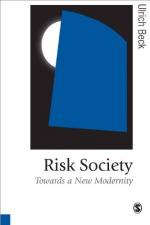|
This section contains 1,855 words (approx. 7 pages at 300 words per page) |

|
The concept of risk, long associated with the language of maritime trade and insurance, has become a key term for characterizing contemporary Western societies. Important early contributions to the development of this analysis were the work of Patrick Lagadec (1981), who coined the term risk civilization, and that of Mary Douglas and Aaron Wildavsky (1982). However, Ulrich Beck's Risk Society (1992), originally published in German in 1986, was the decisive contribution to a new theory of society. Beck's conceptualization has inspired research that focuses on the implications of science and technology for the social and natural environment and on the increasing use of risk analysis in discussions of public policies related to science and technology, and which involve ethical questions.
Reflexive Modernity
Beck's theory represents a continuation of the German tradition of an ethical questioning of modernity, including science and technology, that runs from Max Weber (1864–1929) through Jürgen Habermas...
|
This section contains 1,855 words (approx. 7 pages at 300 words per page) |

|


